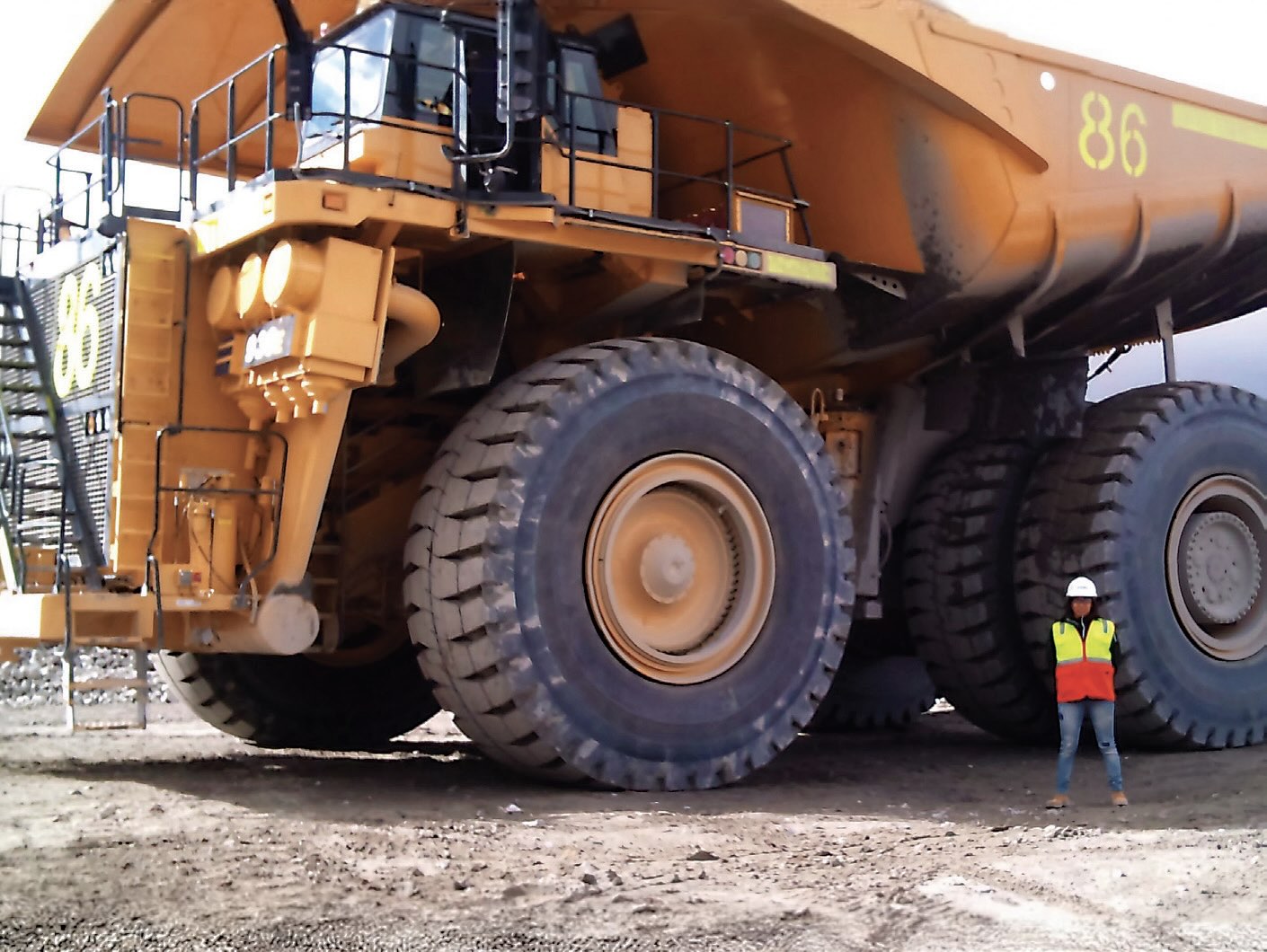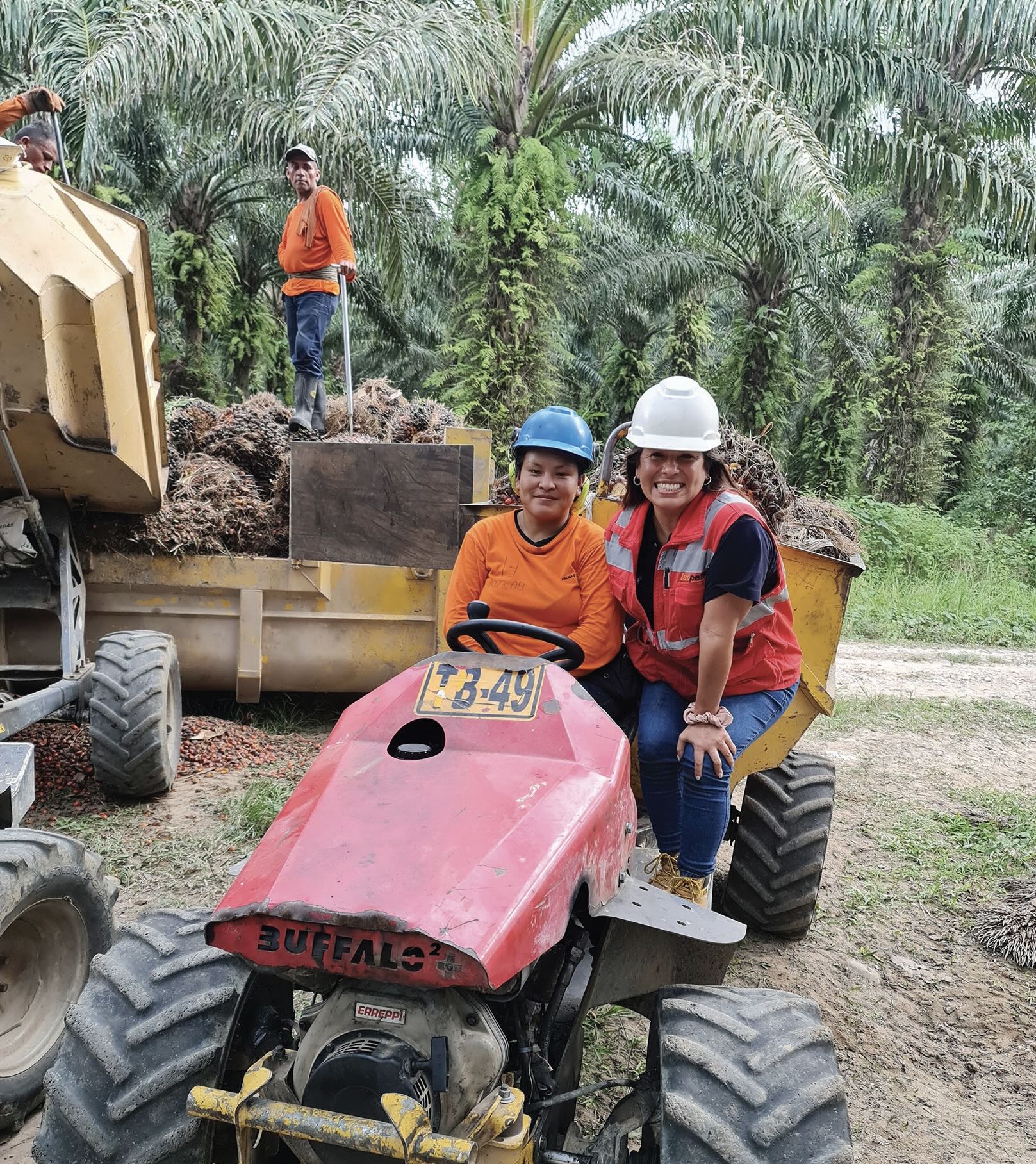TLT: How long have you worked in a lubrication-related field, and how did you decide to pursue a career in the lubricants industry?
Rupay: My foray into the lubrication field began in 2007, when I joined Mobil Oil’s used oil analysis laboratories in Peru. There I provided internal services for VIP clients. During my time in the laboratories, I not only became familiar with used oil analysis methods, but I also learned how to use this data to make informed decisions.
By interacting with end-users, I realized the importance of correct lubrication, considering the entire useful life cycle of the lubricant. This experience sparked my interest and motivated me to seek specialization in this field. Since then, I have been committed to continually improving my skills and knowledge in the lubrication industry.
T
LT: What has been your most rewarding accomplishment throughout your career in the lubricants industry?
Rupay: One rewarding achievement for me has been figuring out the process of selecting the most optimal lubricant, taking into account the specific application and operational environment. This process requires a detailed understanding of operating conditions.
Regarding oil analysis, I have managed to detect potential failures before they become functional. It’s gratifying because it allows us to prevent major problems and optimize equipment performance.
I’ve also been able to coach different teams of technicians and business advisors. This experience has allowed me to share my knowledge and contribute to the professional development of others in the industry.
TLT: What is the No. 1 piece of advice you would give to a person who might be interested in starting a career in the lubricants industry?
Rupay: My main advice for someone interested in starting a career in the lubricants industry would be: Dedicate yourself to continuous learning. This is a constantly evolving industry, with new technologies and techniques emerging regularly. Therefore, it is important to stay updated with the latest trends and advancements. Also, don’t underestimate the value of practical experience. Working directly with lubricants and equipment will give you a deep understanding that cannot be obtained through theoretical study alone. Also remember that effective communication is key. You will be a liaison between technicians, engineers and customers, so your ability to communicate technical information clearly and concisely will be invaluable.
TLT: Throughout the different segments within your career, which one has been the most interesting, challenging and/or rewarding?
Rupay: I have found that each segment has had its own challenges and interests. However, one of the most notable aspects has been the gender dynamics in this field. Traditionally this has been a male-dominated world, and as a woman, it was rare to see other women in this major.
However, through constant training and accreditation, I have seen a change in how I am perceived in the world of tribology. This change has not only been rewarding, but it also has been an interesting challenge. It has motivated me to continue learning and to show that women can have a significant impact in this industry. This experience has been, without a doubt, one of the most rewarding of my career.
 Lubrication service supervision at the Antamina pit is required 24/7, ensuring operational efficiency of mining trucks through continuous monitoring of lubrication conditions.
Lubrication service supervision at the Antamina pit is required 24/7, ensuring operational efficiency of mining trucks through continuous monitoring of lubrication conditions.
TLT: How has the lubricant industry evolved during your career?
Rupay: The lubricant industry has seen numerous changes throughout my career. With the advancement of technology, we have seen significant improvements in the quality and efficiency of lubricants. Additionally, growing environmental awareness has led to an increased focus on ecofriendly lubricants.
 On-site inspection of operating conditions at the Palmas del Espino Palmawasi plantation, assessing key factors that could influence equipment performance and lubrication on the Buffalo tractor.
On-site inspection of operating conditions at the Palmas del Espino Palmawasi plantation, assessing key factors that could influence equipment performance and lubrication on the Buffalo tractor.
TLT: What is the one thing you wish you would have learned earlier in your career?
Rupay: If I had to pick one thing I wish I had learned earlier in my career, it would be the value of credentials and the impact of tribology on the financial environment.
Accreditations are an important recognition of competence and experience. Not only do they provide external validation of skills and knowledge, but they also can open doors to new opportunities and challenges.
On the other hand, tribology has a significant impact on the financial environment. The costs associated with maintaining, repairing and replacing equipment can be enormous. Effective lubrication management can reduce these costs and improve operational efficiency, which in turn can have a positive impact on a company’s profitability.
These two aspects are essential for any professional working in the lubrication industry, and I wish I had fully understood them at the beginning of my career.
You can reach Rocio Rupay at rrupay@isopetrol.com.pe.